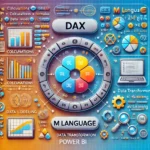BigQuery vs. Cloud SQL: Navigating Data Warehousing and Managed Databases
In the expansive realm of data management and analysis, two juggernauts vie for attention: BigQuery and Cloud SQL. As data becomes the driving force behind informed decisions, understanding the distinctions between these powerhouses is crucial. In this blog post, we’ll embark on a journey to unravel the core features of BigQuery and Cloud SQL, helping you make an educated choice for your data needs.
Unveiling BigQuery and Cloud SQL
BigQuery: Google’s BigQuery stands as a fully-managed, serverless data warehousing and analytics platform. Built to handle massive datasets and execute complex queries, BigQuery employs distributed architecture for lightning-fast processing. With seamless integration into Google Cloud services, it’s a go-to solution for organizations seeking data-driven insights.
Cloud SQL: On the other hand, Cloud SQL is Google Cloud’s managed relational database service. It provides a fully-managed environment for popular database engines such as MySQL, PostgreSQL, and SQL Server. Cloud SQL offers simplicity and ease of management, catering to applications that rely on structured, relational data.
https://synapsefabric.com/2023/08/18/unveiling-the-powerhouse-bigquery-vs-bigtable/
Feature Face-off
Let’s delve into a head-to-head comparison of BigQuery and Cloud SQL:
| Aspect | BigQuery | Cloud SQL |
|---|---|---|
| Use Case | Ideal for querying and analyzing massive datasets. | Suited for applications requiring relational data. |
| Data Structure | Handles structured, semi-structured, and nested data. | Proficient with structured, relational data. |
| Query Language | Leverages SQL dialect for querying and analysis. | Utilizes standard SQL for relational databases. |
| Scalability | Auto-scales for analytical queries on large data. | Auto-scales to handle varying database workloads. |
| Performance | Excels in handling complex, ad-hoc queries. | Provides high-performance for structured data. |
| Cost Structure | Based on usage, with query and storage costs. | Costs depend on instance type and usage. |
| Ease of Use | User-friendly interface, suitable for analysts. | Simplifies database management for developers. |
| Integration | Seamlessly integrates with Google Cloud services. | Harmonizes with other Google Cloud tools. |
| Replication | Offers table-level streaming and batch exports. | Supports replication for high availability. |
| Data Sources | Supports Google Sheets, Cloud Storage, and more. | Relies on structured data from various sources. |
| Security | Features robust access controls and encryption. | Provides security through IAM and SSL. |
Choosing the Right Path
The choice between BigQuery and Cloud SQL hinges on your organization’s unique requirements:
BigQuery excels in the realm of massive data analytics, catering to businesses seeking rapid query processing and data exploration.
Cloud SQL serves those in need of structured, relational data storage with a managed approach, catering to application development and backends.
BigQuery and Cloud SQL are formidable forces within the Google Cloud ecosystem, catering to diverse data needs. The ultimate decision rests upon your data’s nature, your query requirements, and your team’s expertise. Armed with insights into both platforms, you’re well-equipped to make a well-informed choice that aligns with your data management and analysis aspirations.






